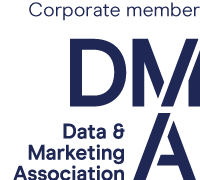Across the UK, more and more businesses are re-evaluating how they use data. The conversation around sector-specific data vs generic lists has become front and centre, with good reason.
Generic lists might give you volume, but sector-specific data gives you value. It's the difference between shouting into the void and waiting for the echo versus having a one-to-one conversation over a coffee with a good prospect plucked from your ICP.
At Databroker, we've seen first-hand how much of a difference the right data makes. After helping thousands of UK businesses run compliant, results-driven campaigns; we can confidently say that by 2026, sector-specific data won't just be an advantage – it'll be essential.
What Do We Mean by "Sector-Specific" vs "Generic"?
A generic list is broad and unfocused – a bit like throwing a dart blindfolded. You might hit the board, but not the target. You are likely to miss the target altogether!
These lists usually include contacts from multiple industries with limited detail about company type, sector activity or decision-maker roles. They're fine for basic outreach, but they don't give you the depth you need to run targeted, compliant and efficient campaigns.
Sector-specific data, on the other hand, is built around the realities of a particular industry – such as finance, construction, manufacturing, healthcare or education. The data reflects the terminology, structure and buying patterns unique to that market.
At Databroker, we specialise in this kind of precision. Whether it's care homes, architects, fleet-operating businesses or marketing agencies (to give some examples), we build data lists that speak directly to the people who matter.
The Limits of Generic Lists
On paper, generic lists might look like a cost-effective option. But dig a little deeper, and the cracks start to show:
Compliance risks:
Generic data rarely considers the regulations that apply with marketing and that can cause serious problems. Remember, compliance isn't optional. Databroker's lists are always built and checked in a compliant manner, so you can market confidently. Ask us for our detailed compliance pack if you'd like to know more.
Wasted budget:
You'll often end up paying to contact people or businesses who'll never be relevant to your offer. That's time, money and opportunity lost.
Weak insight:
Generic data gives you volume, not accuracy. A quality list broker will work with you to understand your ideal customer profile (ICP) and from there match this to the data available.
Competitive disadvantage:
Your competitors are getting smarter. Those using sector-specific data can make quicker, sharper decisions and win the opportunities you miss.
Generic lists might still serve a purpose for broad research or market mapping, but they simply aren't enough to drive serious growth.
Why Sector-Specific Data Wins Every Time
Here's why UK businesses are shifting towards industry-focused data and why Databroker's approach has become the gold standard:
It's tailored to your market:
You get information that matches your world, in terms of job titles, turnover ranges, employee counts, SIC codes and market segments relevant to your industry. Plus any other bespoke data selections you may have.
It's more accurate and campaign-ready:
No more "catch-all" spreadsheets full of dead ends. Databroker's data is verified, telephone or research verified and sourced from trusted UK providers.
It's built for compliance:
Every record is GDPR-compliant and aligned to the UK's Direct Marketing rules, most recently encompassed by the DUAA. We're ICO-registered and DMA members, so you're backed by one of the most trusted names in data.
It's flexible:
Data needs change. We provide 12-month licences, mid-term refreshes and custom enhancements – so your lists stay current as your campaigns evolve.
How Sector-Specific Data Works in Practice
Here are some real-world examples that show how targeted data changes the game:
Healthcare:
Instead of a generic "medical" list, you can focus on UK care homes, GP practices or NHS procurement contacts. It could be more detailed still and include care home groups, NHS dentists and medical practitioners with specific interests/specialisms – everything is matched to your brief.
Finance:
Reach decision-makers in FCA-regulated firms, credit brokers or accounting practices, not generic "financial services" job titles. Focus on businesses making regular profits, segment by credit score or search out hedge funds and investment firms – this possibilities are endless.
Construction:
Target contractors, surveyors and project managers working on live developments, not broad "building companies." Furthermore, contact sustainability decision makers, specialist operators in glazing, demolition or HVAC or give us your bespoke criteria and we'll build the list for you.
Retail & e-commerce:
Reach marketing and digital leads in large retail groups or online stores, perfect for suppliers, tech providers and service businesses.
Technology:
Dial-in on businesses by the type of CRM or ERP system they use, target them based on VOIP or legacy phone systems, IT software vendors, VARs, SIs or resellers – there are endless tech selections held by Databroker.
That's the level of accuracy Databroker delivers – no guesswork, no wasted effort, and no compliance headaches.
The 2026 Advantage
Looking ahead, the difference between businesses that grow and those that fall behind will come down to data quality and relevance. By 2026, sector-specific data will be the standard. Companies using precise, compliant, real-time insight will:
- Plan faster and act with confidence
- Integrate data into CRMs, ERPs and automation tools seamlessly
- Reduce marketing waste and increase ROI
- Stay ahead of changing privacy and compliance demands
Those still relying on generic lists will spend more time fixing and filtering and less time selling.
Why Databroker Leads the Way
After more than 15 years in the UK B2B data industry, Databroker has seen every kind of list, dataset and campaign imaginable. Remember, to us every client is different and every brief handled independently.
Our experience means we know what works and what doesn't. We act as an independent list broker, comparing trusted UK and international data sources to find the right fit for your brief. We also offer full data enhancement, cleansing and appending services to make sure your CRM stays campaign-ready.
Whether you're launching into a new market or refreshing your existing database, we'll help you build a targeted, compliant list that delivers results.
Conclusion
The argument between sector-specific data vs generic lists comes down to one thing: relevance.
Generic lists may give you quantity, but sector-specific data gives you quality and quality wins every time.
In a world moving towards tighter compliance, AI-driven marketing and measurable ROI, accurate, targeted, sector-specific data isn't just a nice-to-have – it's a necessity.
At Databroker, we've built our reputation on helping UK businesses cut through the noise with data that works. So if you're ready to stop guessing and start targeting, get in touch and let's build a data strategy that's as smart as your goals.






